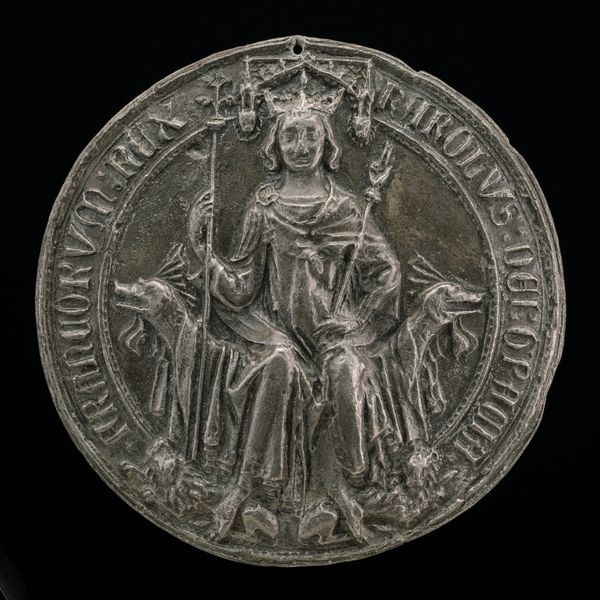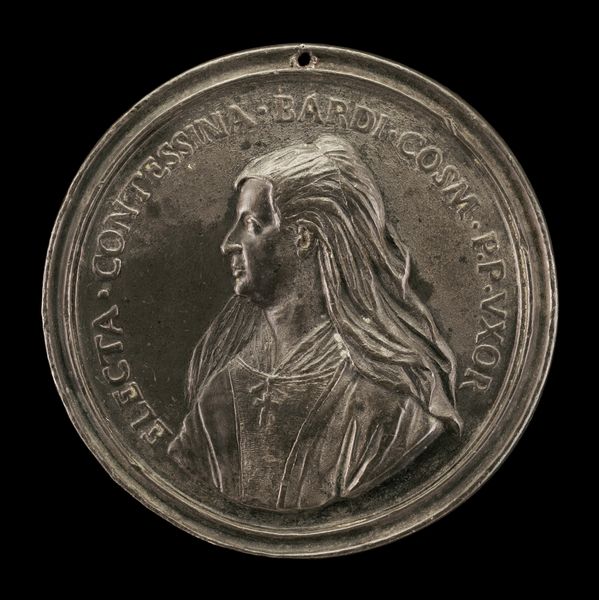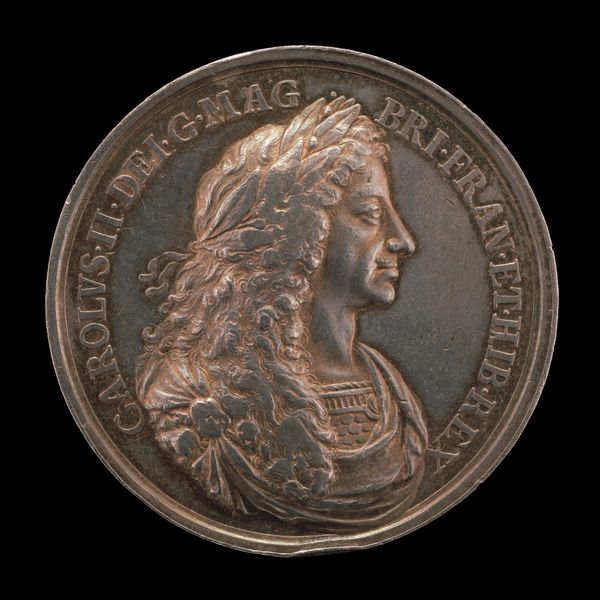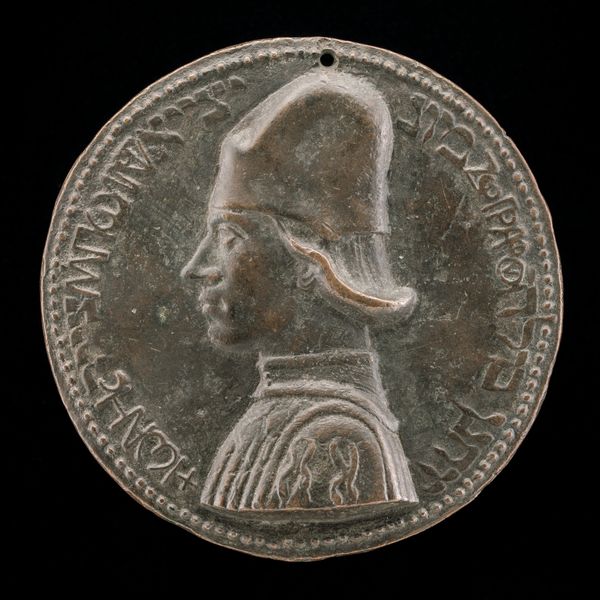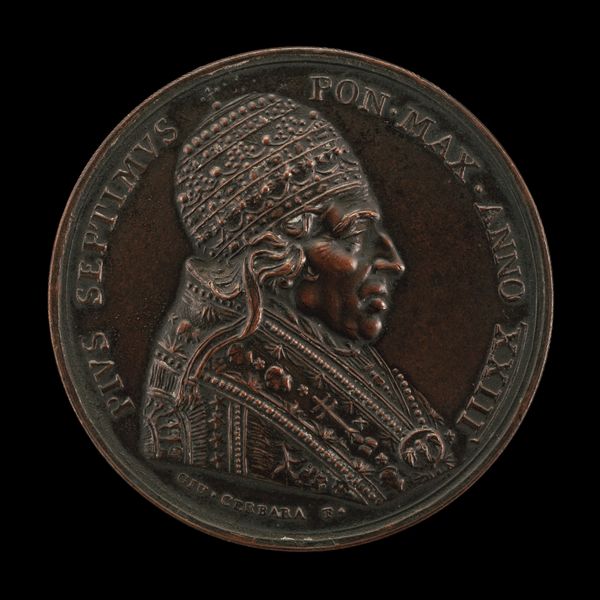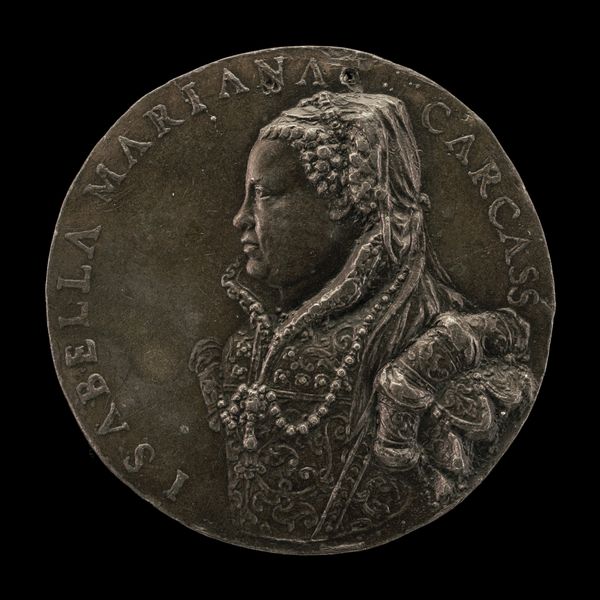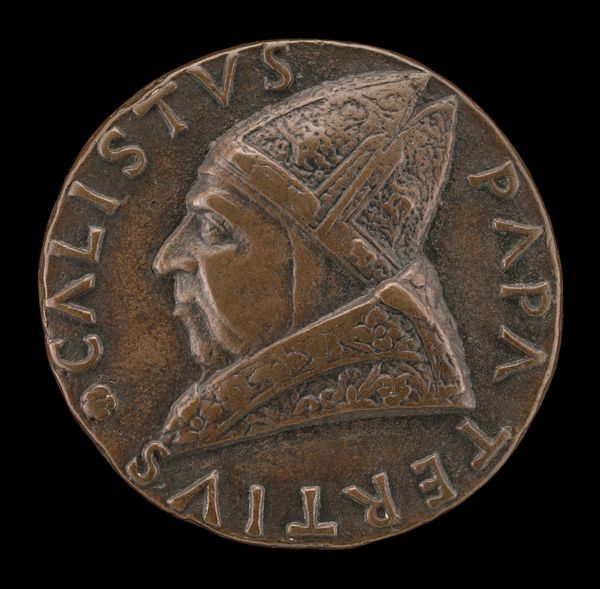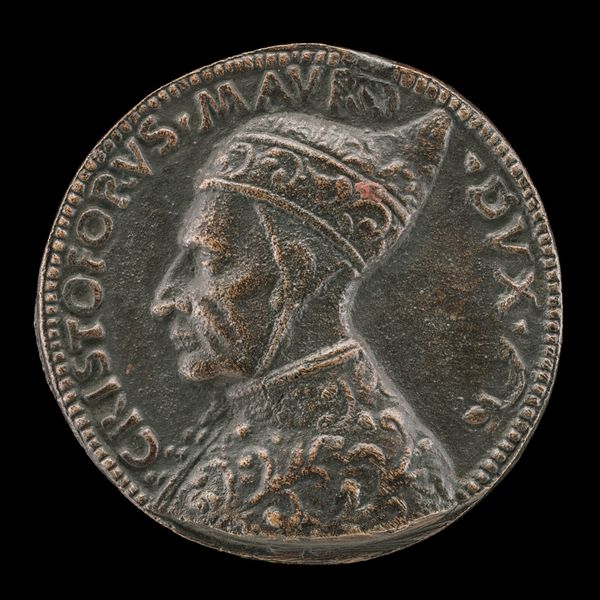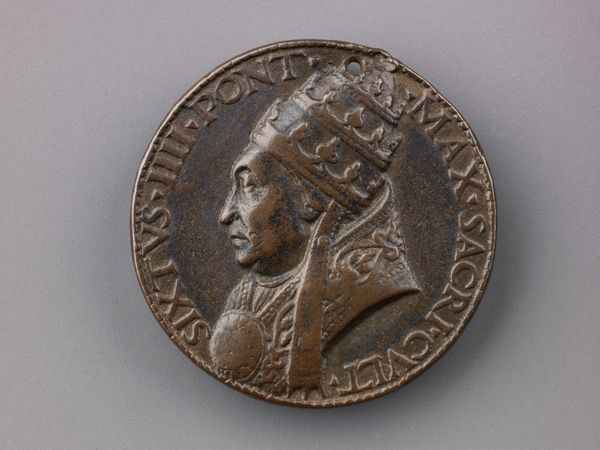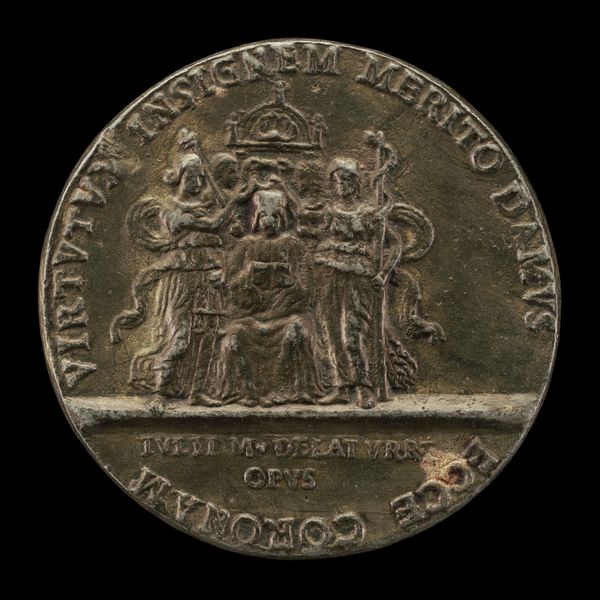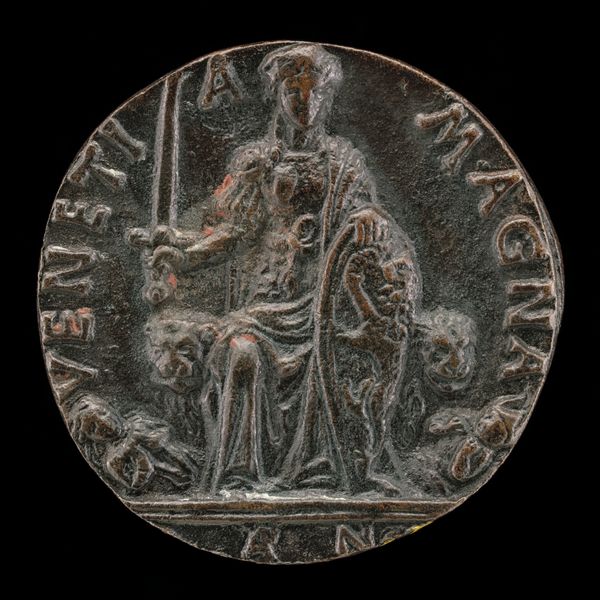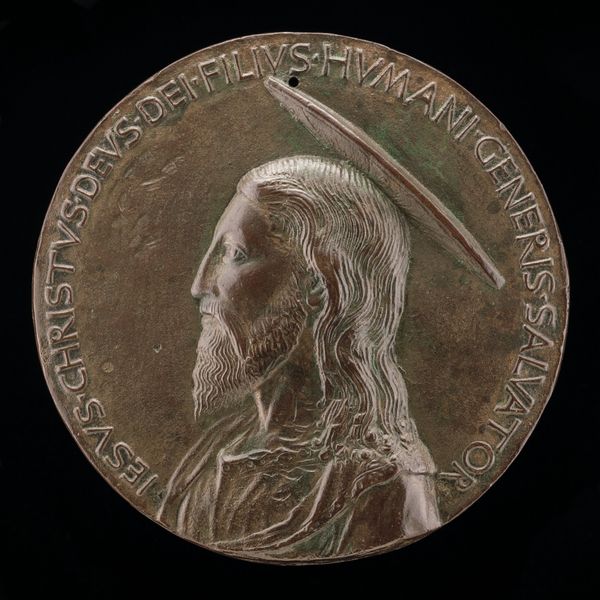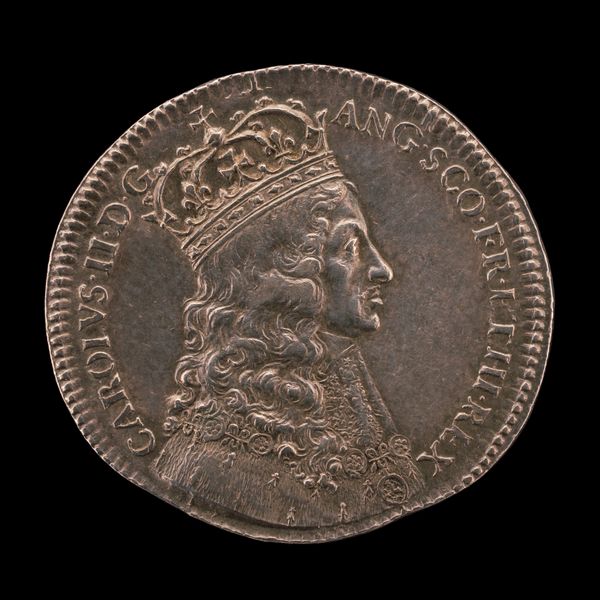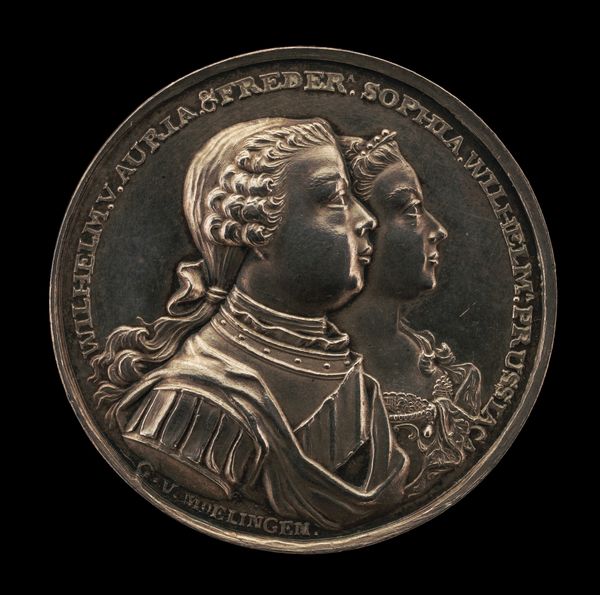
Faustina Sforza, born c. 1532, Marchioness of Caravaggio 1546 after 1552
0:00
0:00
metal, relief, sculpture
#
portrait
#
metal
#
sculpture
#
relief
#
11_renaissance
#
sculpture
#
italian-renaissance
Dimensions: overall (diameter): 7 cm (2 3/4 in.) gross weight: 42.69 gr (0.094 lb.)
Copyright: National Gallery of Art: CC0 1.0
Vincenzo di Giovanni Lupicini made this bronze portrait medal of Faustina Sforza around the turn of the 17th century. The material itself—bronze— speaks to a highly skilled tradition of metalworking, as it needs to be melted, cast, and then meticulously worked to bring out the fine details of Faustina's features and clothing. The medal format also bears significance. Reproducible through casting, portrait medals like this were often created to commemorate individuals of high status. The touch and weight of the metal, the way the image seems to emerge from the dark background—all this would have contributed to the medal’s preciousness. In a world increasingly shaped by trade, industry, and emerging capitalism, the bronze medium used to immortalize Faustina Sforza not only represents her high social position but also reflects broader issues of labor, skill, and material value during the Renaissance. By emphasizing the artistry and skill involved, we can better appreciate its historical and cultural meaning beyond just a representation of wealth and status.
Comments
No comments
Be the first to comment and join the conversation on the ultimate creative platform.
